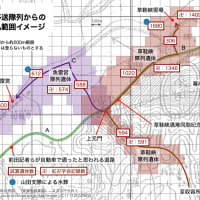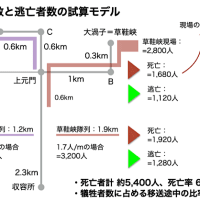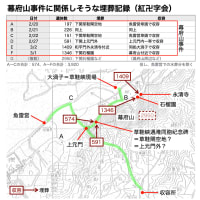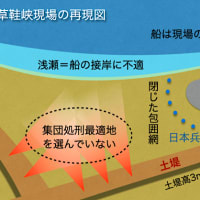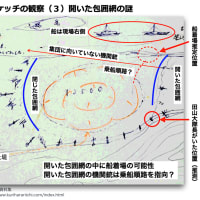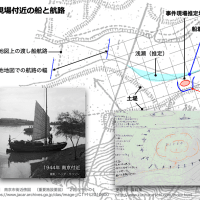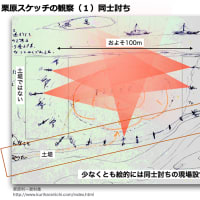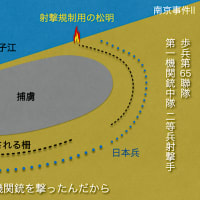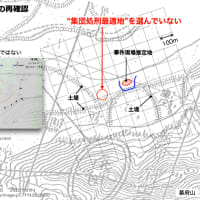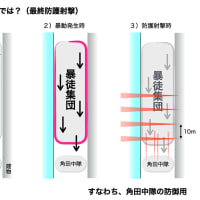米国政府が、中国に徹底抗戦を宣言したように見えるので機械翻訳(+微修正)を添えて転載。その前半。

Events - Vice President Mike Pence's Remarks on the Administration's Policy Towards China - October - 2018 - Hudson Institute
https://www.hudson.org/events/1610-vice-president-mike-pence-s-remarks-on-the-administration-s-policy-towards-china102018
Remarks delivered by President Mike Pence on the administration’s policy towards China at Hudson Institute on October 4, 2018:
2018年10月4日、ハドソン研究所における「中国に対する政府の政策」についてのマイク・ペンス副大統領の発言:
Thank you, Ken, for that kind introduction. To the Members of the Board of Trustees, to Dr. Michael Pillsbury, to our distinguished guests, and to all of you who, true to your mission, “think about the future in unconventional ways” – it’s an honor to be back at the Hudson Institute.
Kenさん、ご紹介ありがとうございました。 理事会のメンバー、マイケル・ピルスベリー博士、私たちの著名なゲスト、そしてあなたの使命に忠実である皆さんに。ハドソン研究所に戻ることは名誉です。
For more than half a century, this Institute has dedicated itself to “advancing global security, prosperity, and freedom.” And while Hudson’s hometowns have changed over the years, one thing has held constant: You have always advanced that vital truth, that American leadership lights the way.
この研究所は、半世紀以上にわたり、「世界の安全保障、繁栄、自由の育成」に専念してきました。ハドソンの故郷は何年も変わってきましたが、ひとつのことは変わりません。あなた方は常に、その重要な真実、アメリカ人のリーダーシップが道を照らすこと、を進歩させました。
And today, I bring greetings from a champion of American leadership, at home and abroad – the 45th President of the United States of America, President Donald Trump.
そして、今日、私は米国内のリーダーシップのチャンピオンである内外の第45代アメリカ大統領、ドナルド・トランプ大統領からのごあいさつの言葉をお持ちしました。
From early in this administration, President Trump has made our relationship with China and President Xi a priority. On April 6th of last year, President Trump welcomed President Xi to Mar-A-Lago. On November 8th of last year, President Trump traveled to Beijing, where China’s leader welcomed him warmly.
この政権の早い段階から、トランプ大統領は中国および習近平国家主席との関係を優先させました。 昨年4月6日、トランプ大統領は習近平国家主席をマル・ア・ラーゴに迎え入れました。 去年の11月8日、トランプ大統領は中国の指導者が暖かく歓迎した北京を訪れました。
Over the course of the past 2 years, our President has forged a strong personal relationship with the president of the People’s Republic of China, and they’ve worked closely on issues of common interest, most importantly the denuclearization of the Korean Peninsula…
過去2年間に、大統領は中華人民共和国の国家主席との強い個人的関係を築き、共通の関心事、最も重要なのは朝鮮半島の非核化問題について緊密に協力してきました...
But I come before you today because the American people deserve to know… as we speak, Beijing is employing a whole-of-government approach, using political, economic, and military tools, as well as propaganda, to advance its influence and benefit its interests in the United States.
しかし、私は今日あなたの前に来ます。なぜなら、アメリカ人は、私たちが話しているように、知るに値します。北京は政治的、経済的、軍事的なツールやプロパガンダを使って、政府の影響力を高め、米国での利益を享受するため、政府全体のアプローチを採用している。
China is also applying this power in more proactive ways than ever before, to exert influence and interfere in the domestic policy and politics of our country.
中国はまた、これまで以上に積極的な方法でこの権力を適用し、影響力を行使し、我が国の国内政策と政治を妨害している。
Under our administration, we’ve taken decisive action to respond to China with American leadership, applying the principles, and the policies, long advocated in these halls.
私たちの政権下では、長い間アメリカの指導者たちが主導してきた原則や政策を適用して、アメリカの指導力をもって中国に対応するための決定的な行動を取った。
In the “National Security Strategy” that President Trump released last December, he described a new era of “great power competition.” Foreign nations have begun to “reassert their influence regionally and globally,” and they are “contesting [America’s] geopolitical advantages and trying to change the international order in their favor.”
トランプ大統領が昨年12月に発表した「国家安全保障戦略」では、彼は「偉大な権力競争」の新たな時代を語った。外国は、「地域的かつ世界的にその影響力を再確認し始めている」と彼らは「アメリカの地政学的利点 国際秩序を変えようとしている」と述べた。
In this strategy, President Trump made clear that the United States of America has adopted a new approach to China. We seek a relationship grounded in fairness, reciprocity, and respect for sovereignty, and we have taken strong and swift action to achieve that goal.
この戦略では、トランプ大統領は、米国が中国に対して新しいアプローチを採用したことを明確にした。 私たちは、公平、相互主義、主権の尊重に基づいた関係を追求し、その目標を達成するために強力かつ迅速な行動を取ってきました。
As the President said last year on his visit to China, “we have an opportunity to strengthen the relationship between our two countries and improve the lives of our citizens.” Our vision of the future is built on the best parts of our past, when America and China reached out to one another in a spirit of openness and friendship…
大統領が昨年中国訪問の際に言ったように、「両国の関係を強化し、市民の生活を改善する機会があります」と述べました。将来のビジョンは、過去の最高の部分に基づいています。 アメリカと中国は開かれた友好の精神でお互いに出会いました...
When our young nation went searching in the wake of the Revolutionary War for new markets for our exports, the Chinese people welcomed Americans traders laden with ginseng and fur…
私たちの若い国家は、革新的な戦争(=アメリカ独立戦争)の後、輸出のための新しい市場のために探索したとき、中国人は朝鮮人参と毛皮を積んだアメリカ人の貿易業者を歓迎した...
When China suffered through indignities and exploitation during her so-called “Century of Humiliation,” America refused to join in, and advocated the “Open Door” policy, so that we could have freer trade with China, and preserve their sovereignty…
中国がいわゆる「屈辱の世紀」の間に侮辱と搾取で苦しんだ時、アメリカは加盟を拒否し、「開放扉」政策を提唱し、中国と自由貿易を行い、主権を守ることができた。
When American missionaries brought the good news to China’s shores, they were moved by the rich culture of an ancient but vibrant people, and not only did they spread faith; they also founded some of China’s first and finest universities…
アメリカの宣教師が中国の海岸に良い知らせをもたらしたとき、彼らは古くて活気のある人々の豊かな文化に動かされ、信仰を広めるだけでなく、 彼らはまた、いくつかの中国初の優秀な大学を設立しました...
When the Second World War arose, we stood together as allies in the fight against imperialism… And in that war’s aftermath, America ensured that China became a Charter member of the United Nations, and a great shaper of the post-war world.
第二次世界大戦が始まったとき、私たちは帝国主義との闘いにおいて同盟国として立ち上がりました...そしてその戦争の余波の中で、アメリカは中国が国連の創立会員となり、戦後の世界の偉大なシェイパー(=形づくる人)になることを確実にしました。
But soon after it took power in 1949, the Chinese Communist Party began to pursue authoritarian expansionism. Only five years after our nations had fought together, we fought each other, on the mountains and in the valleys of the Korean Peninsula. My own father saw combat on those frontlines of freedom.
しかし、1949年に権力を掌握した直後、中国共産党は権威主義的な膨張主義を追求し始めた。 私たちの国々が一緒に戦ってからわずか5年後、私たちはお互いに戦い、朝鮮半島の山々と谷間で戦った。 私の父は自由の最前線で戦いを見た。
Not even the brutal Korean War could diminish our mutual desire to restore the ties that for so long bound us together. China’s estrangement from the United States ended in 1972, and soon after, we re-established diplomatic relations, began to open our economies to one another, and American universities began training a new generation of Chinese engineers, business leaders, scholars, and officials.
残忍な朝鮮戦争でさえ、私たちが長い間一緒に結ばれてきた絆を取り戻すという、私たちの相互の希望を弱めることはできません。 中国の米国からの疎遠は1972年に終わり、すぐに我々は外交関係を再確立し、両国の経済を互いに開放し始め、アメリカの大学は新世代の中国の技術者、ビジネスリーダー、学者、職員の訓練を開始した。
After the fall of the Soviet Union, we assumed that a free China was inevitable. Heady with optimism, at the turn of the 21st Century, America agreed to give Beijing open access to our economy, and bring China into the World Trade Organization.
ソ連の崩壊後、私たちは自由な中国が避けられないと仮定しました。 楽観主義をもって、アメリカは21世紀に入り、北京に経済開放を与え、中国を世界貿易機関に連れて行くことに合意した。
Previous administrations made this choice in the hope that freedom in China would expand in all forms – not just economically, but politically, with a newfound respect for classical liberal principles, private property, religious freedom, and the entire family of human rights… but that hope has gone unfulfilled.
これまでの政権は、中国における自由が、古典的自由主義、私有財産、宗教上の自由、そして人権の全家族のために新たな敬意を払って、経済的ではなく政治的にすべての形で拡大することを期待してこの選択をしました。 希望は満たされていません。
The dream of freedom remains distant for the Chinese people. And while Beijing still pays lip service to “reform and opening,” Deng Xiaoping’s famous policy now rings hollow.
自由の夢は、中国人にとっては遠いです。 そして、北京はまだ「改革と開放」にリップサービスを支払っているが、鄧小平の有名な政策は空洞になっている。
Over the past 17 years, China’s GDP has grown 9-fold; it has become the second-largest economy in the world. Much of this success was driven by American investment in China. And the Chinese Communist Party has also used an arsenal of policies inconsistent with free and fair trade, including tariffs, quotas, currency manipulation, forced technology transfer, intellectual property theft, and industrial subsidies doled out like candy, to name a few. These policies have built Beijing’s manufacturing base, at the expense of its competitors – especially America.
過去17年間、中国のGDPは9倍になった。 それは世界で2番目に大きな経済となっています。 この成功の大部分はアメリカの中国への投資によってもたらされました。 また、中国共産党は、関税、割当、通貨操作、強制的な技術移転、知的財産窃盗、およびキャンディーのような業種補助金を含む、自由かつ公平な貿易と矛盾する政策の武器も使用している。 これらの政策は、競争相手、特にアメリカを犠牲にして、北京の製造拠点を建設した。
China’s actions have contributed to a trade deficit with the United States that last year ran to $375 billion – nearly half of our global trade deficit. As President Trump said just this week, “we rebuilt China” over the last 25 years.
中国の行動は、昨年の3,750億ドルに達した米国との貿易赤字に貢献しました。これは世界的な貿易赤字のほぼ半分です。 トランプ大統領が今週ちょうど言ったように、私たちは過去25年間に "中国を再建しました"。
Now, through the “Made in China 2025” plan, the Communist Party has set its sights on controlling 90% of the world’s most advanced industries, including robotics, biotechnology, and artificial intelligence. To win the commanding heights of the 21st Century economy, Beijing has directed its bureaucrats and businesses to obtain American intellectual property – the foundation of our economic leadership – by any means necessary.
現在、「Made in China 2025」計画を通じて、共産党は、ロボット工学、バイオテクノロジー、人工知能など、世界で最も先進的な産業の90%を管理することを目指しています。 北京は、21世紀の経済の高台に勝つために、官僚や企業に、経済的リーダーシップの基礎であるアメリカの知的財産を必要な手段で入手するよう指示しました。
Beijing now requires many American businesses to hand over their trade secrets as the cost of doing business in China. It also coordinates and sponsors the acquisition of American firms to gain ownership of their creations. Worst of all, Chinese security agencies have masterminded the wholesale theft of American technology – including cutting-edge military blueprints.
北京では現在、多くのアメリカ企業が営業秘密を中国で事業を行うコストとして引き渡す必要があります。 また、アメリカ企業の買収を調整し、スポンサーにして、その創造物の所有権を獲得する。 最悪の場合、中国のセキュリティ機関は、最先端の軍事計画を含む米国の技術の卸売盗難を支配してきた。
And using that stolen technology, the Chinese Communist Party is turning plowshares into swords on a massive scale…
そして、その盗難された技術を使って、中国共産党は巨大な規模で鋤を剣に変えています...
China now spends as much on its military as the rest of Asia combined, and Beijing has prioritized capabilities to erode America’s military advantages – on land, at sea, in the air, and in space. China wants nothing less than to push the United States of America from the Western Pacific and attempt to prevent us from coming to the aid of our allies.
中国は現在、他のアジア諸国と同じくらい軍事力を兼ね備えており、北京は、陸上、海上、空中、宇宙での軍事的優位性を侵食する能力を優先させている。 中国は、米国を西太平洋から追い出し、私たちが同盟国の援助を受けないようにすることを望んでいる。
Beijing is also using its power like never before. Chinese ships routinely patrol around the Senkaku Islands, which are administered by Japan. And while China’s leader stood in the Rose Garden of the White House in 2015 and said that his country had “no intention to militarize the South China Sea,” today, Beijing has deployed advanced anti-ship and anti-air missiles atop an archipelago of military bases constructed on artificial islands.
北京はかつてないほどの力を使っている。 中国の船舶は、日本が管轄する尖閣諸島周辺を日常的に巡回している。 そして、中国の指導者は2015年にホワイトハウスのローズガーデンに立っていたが、彼の国は「南シナ海を軍事化するつもりはない」と述べ、今日北京は、人工島に建設された軍事基地の群島の上に、高度な対艦および対空ミサイルを配備している。
China’s aggression was on display this week, when a Chinese naval vessel came within 45 yards of the USS Decatur as it conducted freedom-of-navigation operations in the South China Sea, forcing our ship to quickly maneuver to avoid collision. Despite such reckless harassment, the United States Navy will continue to fly, sail and operate wherever international law allows and our national interests demand. We will not be intimidated; we will not stand down.
今週の中国の攻撃は、中国海軍の艦船がUSSディケーター(=米海軍駆逐艦)の45ヤード(=約41メートル)以内に接近したとき、南シナ海の航行の自由を遂行し、衝突を避けるために船を素早く操縦しなければならなかった。 このような無謀な嫌がらせにもかかわらず、米国海軍は、国際法が許し、国益が要求するところであれば、飛行、航行、運航を続けます。 我々は威圧されません。 私たちは立ち止まりません。
America had hoped that economic liberalization would bring China into greater partnership with us and with the world. Instead, China has chosen economic aggression, which has in turn emboldened its growing military.
アメリカは、経済自由化が中国を私たちと世界とより大きなパートナーシップにつなげることを望んでいました。 代わりに、中国は経済的な侵略を選択しており、それは成長する軍隊を大胆に拡大している。
Nor, as we hoped, has Beijing moved toward greater freedom for its people. For a time, Beijing inched toward greater liberty and respect for human rights, but in recent years, it has taken a sharp U-turn toward control and oppression.
私たちが望むように、北京は国民のより大きな自由に向かって進んでいません。 しばらくの間、北京はより大きな自由と人権の尊重に向けて近づいてきたが、近年は統制と抑圧に向けて急激なUターンを取っている。
Today, China has built an unparalleled surveillance state, and it’s growing more expansive and intrusive – often with the help of U.S. technology. The “Great Firewall of China” likewise grows higher, drastically restricting the free flow of information to the Chinese people. And by 2020, China’s rulers aim to implement an Orwellian system premised on controlling virtually every facet of human life – the so-called “social credit score.” In the words of that program’s official blueprint, it will “allow the trustworthy to roam everywhere under heaven, while making it hard for the discredited to take a single step.”
今日、中国は比類のない監視状態を構築しており、しばしば米国の技術の助けを借りて、より広範かつ侵入的な状況になっています。 「中国の偉大なファイアウォール」も同様に高くなり、中国人への情報の自由な流れを大幅に制限しています。 そして、2020年までに、中国の支配者は、人生のあらゆる側面、いわゆるソーシャル・クレジット・スコアをコントロールすることを前提としたオーウェル系(=非人間的社会の)システムを導入することを目指しています。そのプログラムの公式の青写真の言葉で、「信じられない人たちが一歩一歩踏み出すのを困難にしながら、信頼できる人が天の下のどこへでも移動できるようにする」
And when it comes to religious freedom, a new wave of persecution is crashing down on Chinese Christians, Buddhists, and Muslims…
それが宗教上の自由になると、新たな迫害の波が中国のキリスト教徒、仏教徒、イスラム教徒たちを打ち砕いている...
Last month, Beijing shut down one of China’s largest underground churches. Across the country, authorities are tearing down crosses, burning bibles, and imprisoning believers. And Beijing has now reached a deal with the Vatican that gives the avowedly atheist Communist Party a direct role in appointing Catholic bishops. For China’s Christians, these are desperate times.
先月、北京は中国最大の地下教会の一つを閉鎖した。 全国的に、当局は十字架を裂き、聖書を燃やし、信者を投獄している。 そして、北京は現在、無神論者である共産党にカトリック司教の任命に直接的な役割を果たすバチカンとの契約に達している。 中国のクリスチャンにとって、これは絶望的な時です。
Beijing is also cracking down on Buddhism. Over the past decade, more than 150 Tibetan Buddhist monks have lit themselves on fire to protest China’s repression of their beliefs and culture. And in Xinjiang, the Communist Party has imprisoned as many as one million Muslim Uyghurs in government camps where they endure around-the-clock brainwashing. Survivors of the camps have described their experiences as a deliberate attempt by Beijing to strangle Uyghur culture and stamp out the Muslim faith.
北京はまた、仏教を厳しく取り締まっている。 過去10年間で、150人以上のチベットの仏教徒の修道士が中国の信念と文化の鎮圧に抗議するために自ら火をつけた。 そして、新疆では、共産党は、真実の洗脳に耐える政府のキャンプに100万人ものイスラム教徒ウイグル人を投獄している。 キャンプの生存者たちは、ウイグルの文化を絞め殺し、イスラム教徒の信仰を打ち消すための北京の意図的な試みとしての彼らの経験を述べている。
But as history attests, a country that oppresses its own people rarely stops there. Beijing also aims to extend its reach across the wider world. As Hudson’s own Dr. Michael Pillsbury has said, “China has opposed the actions and goals of the U.S. government. Indeed, China is building its own relationships with America’s allies and enemies that contradict any peaceful or productive intentions of Beijing.”
しかし、歴史が証明しているように、自国の人々を圧迫する国は、ほとんどそこで止まりません。 北京はまた、より広い世界にその範囲を広げることを目指しています。マイケル・ピルスベリー博士は、「中国政府は米国政府の行動と目標に反対している。実際、中国は北京の平和的または生産的な意図と矛盾している米国の同盟国や敵国との独自の関係を構築している」と言いました。
China uses so-called “debt diplomacy” to expand its influence.Today, that country is offering hundreds of billions of dollars in infrastructure loans to governments from Asia to Africa to Europe to even Latin America. Yet the terms of those loans are opaque at best, and the benefits flow overwhelmingly to Beijing.
中国はその影響力を拡大するためにいわゆる「債務外交」を利用しています。今日、アジアからアフリカ、ラテンアメリカへのヨーロッパへの政府へのインフラローンは何十億ドルも提供しています。 しかし、これらの融資の条件は、最高で不透明ですが、利益は北京に圧倒的に流れます。
Just ask Sri Lanka, which took on massive debt to let Chinese state companies build a port with questionable commercial value. Two years ago, that country could no longer afford its payments – so Beijing pressured Sri Lanka to deliver the new port directly into Chinese hands. It may soon become a forward military base for China’s growing blue-water navy.
スリランカに質問してください。スリランカは、中国の国営企業が疑わしい商業的価値を持つ港を建てるために大規模な借金をしました。 2年前、その国は支払いを余裕することができなくなりました。そのため、北京はスリランカに新しい港を直接中国の手に渡すよう圧力をかけました。 間もなく、中国の外洋海軍育成のための軍事基地になるだろう。
Within our own hemisphere, Beijing has extended a lifeline to the corrupt and incompetent Maduro regime in Venezuela, pledging $5 billion in questionable loans that can be repaid with oil. China is also that country’s single largest creditor, saddling the Venezuelan people with more than $50 billion in debt. Beijing is also corrupting some nations’ politics by providing direct support to parties and candidates who promise to accommodate China’s strategic objectives…
私たち自身の半球の中で、北京は、ベネズエラの腐敗した無能なマドゥロ体制に生命線を広げ、石油で返済できる疑いのあるローンに50億ドルを誓約しました。 中国はその国の最大の債権者でもあり、ベネズエラの人々に500億ドル以上の負債を抱かせている。 北京はまた、中国の戦略目標を達成することを約束した当事者と候補者に直接的な支援を提供することによって、いくつかの国の政治を腐敗させている...
And since last year, the Chinese Communist Party has convinced 3 Latin American nations to sever ties with Taipeiand recognize Beijing. These actions threaten the stability of the Taiwan Strait – and the United States of America condemns these actions. And while our administration will continue to respect our One China Policy, as reflected in the three joint communiques and the Taiwan Relations Act, America will always believe Taiwan’s embrace of democracy shows a better path for all the Chinese people.
昨年から、中国共産党は中南米3カ国に台北との関係を断ち、北京を認識させるように説得した。 これらの行動は台湾海峡の安定を脅かす - 米国はこれらの行動を非難する。 私たちの政権は、3つの共同声明と台湾関係法に反映されているように、中国の政策を尊重し続ける一方で、台湾の民主主義の抱擁は、中国全土にとってより良い道を示すと常に考えています。
These are only a few of the ways that China has sought to advance its strategic interests across the world, with growing intensity and sophistication. Yet previous administrations all but ignored China’s actions – and in many cases, they abetted them. But those days are over.
これらは、中国が強固で洗練された戦略的利益を世界に広げようとしている方法のほんの一部に過ぎません。 しかし、これまでの政権はすべて中国の行動を無視していました。そして、多くの場合、彼らはそれらを幇助しました。 しかし、その日は終わりです。
米国政府、中国に徹底抗戦を宣言(後半)










